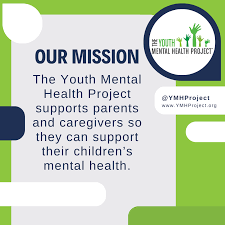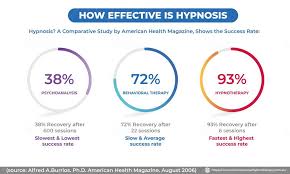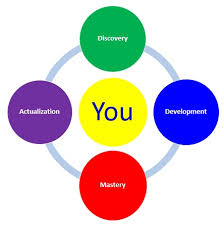Mental health is a crucial aspect of our overall well-being that often goes overlooked. Despite the fact that mental health issues are common, they are still stigmatized and misunderstood by many. It’s important to understand that mental health is just as important as physical health, and it requires the same amount of attention and care.
Mental health issues can manifest in many different ways, from anxiety and depression to more severe conditions such as bipolar disorder or schizophrenia. These conditions can be caused by a variety of factors, including genetics, life experiences, and environmental factors. While some people may be more predisposed to mental health issues than others, anyone can experience them at any point in their life.
One of the biggest barriers to addressing mental health issues is the stigma surrounding them. Many people feel ashamed or embarrassed to admit that they are struggling with their mental health, which can make it difficult for them to seek help. This stigma can also prevent others from understanding what someone with a mental health issue is going through, which can lead to further isolation and misunderstanding.
It’s important to remember that seeking help for mental health issues is not a sign of weakness. In fact, it takes a great deal of strength and courage to acknowledge that you need support and take steps towards healing. There are many different resources available for those struggling with their mental health, including therapy, medication, support groups, and self-care practices such as exercise and mindfulness.
In addition to seeking help when needed, there are also steps we can all take to prioritize our mental health on a daily basis. This includes practicing self-care activities such as getting enough sleep, eating well-balanced meals, exercising regularly, spending time in nature or engaging in creative hobbies. It’s also important to prioritize social connections with friends and family members who provide us with emotional support.
By acknowledging the importance of our mental health and taking proactive steps towards maintaining it, we can all work towards creating a world where mental health issues are destigmatized and everyone has access to the support they need to thrive. Let’s take care of ourselves and each other, one day at a time.
6 Benefits of Prioritizing Mental Health: Boosting Physical Health, Productivity, Creativity, Relationships, Mood, and Self-Esteem
- Improved overall physical health
- Increased productivity
- Increased creativity
- Improved relationships
- Reduced risk of depression or anxiety
- Enhanced self-esteem
Challenges in Mental Health: Overcoming Lack of Awareness, Stigma, and Accessibility
Improved overall physical health
Taking care of our mental health can have a wide range of benefits, including improved overall physical health. While it may seem counterintuitive at first, research has shown that there is a strong connection between our mental and physical well-being.
When we experience stress, anxiety, or depression, our bodies respond by releasing stress hormones such as cortisol and adrenaline. Over time, these hormones can have negative effects on our physical health, such as an increased risk of heart disease and weakened immune system. By taking care of our mental health through practices such as meditation, therapy, or exercise, we can reduce the amount of stress hormones in our body and improve our overall physical health.
In addition to reducing stress hormones, taking care of our mental health can also lead to better sleep habits. Poor sleep has been linked to a variety of negative physical health outcomes such as obesity and diabetes. By prioritizing self-care practices that promote good sleep hygiene such as establishing a regular bedtime routine or avoiding screens before bed, we can improve the quality of our sleep and in turn improve our physical health.
Overall, it’s clear that taking care of our mental health is not only important for our emotional well-being but also for our physical health. By prioritizing practices that promote good mental health such as therapy or mindfulness meditation, we can reap the benefits of improved overall physical health and live happier and healthier lives.
Increased productivity
Maintaining good mental health not only benefits our emotional well-being but can also have a positive impact on our productivity. When we are mentally healthy, we are better equipped to handle stress and remain focused on our tasks, leading to increased productivity at work or school.
Stress is one of the biggest barriers to productivity, and it can have a significant impact on our ability to focus and complete tasks efficiently. When we are under stress, our bodies release cortisol, a hormone that can interfere with cognitive function and make it more difficult to concentrate. By prioritizing our mental health through self-care practices such as exercise, meditation, or therapy, we can reduce stress levels and improve our ability to focus.
In addition to reducing stress levels, good mental health can also help us stay motivated and engaged in our work or studies. When we feel good mentally, we are more likely to be enthusiastic about the projects we’re working on and approach them with a positive attitude. This can lead to increased creativity and better problem-solving skills.
Ultimately, taking care of our mental health is essential for living a fulfilling life both personally and professionally. By prioritizing self-care practices that promote good mental health, we can reduce stress levels and improve focus leading to increased productivity at work or school. So next time you’re feeling overwhelmed or stressed out, take some time for yourself – your productivity will thank you!
Increased creativity
Mental health is not just about reducing stress and anxiety, it can also have a positive impact on our creativity. When we are mentally well, we are more likely to think outside the box, come up with innovative solutions and generate new ideas. This is because mental well-being allows us to approach problems with a more open mind and increased problem-solving skills.
When our minds are clear and free of negative thoughts, we are more receptive to new ideas and inspiration. We also have the ability to think critically, analyze situations from different perspectives, and come up with unique solutions. This is why many successful artists, writers, musicians, and entrepreneurs prioritize their mental health as part of their creative process.
On the other hand, when we are struggling with mental health issues such as anxiety or depression, our minds can become clouded with negative thoughts and limiting beliefs. This can hinder our ability to think creatively and make it difficult to come up with new ideas or solutions.
Therefore, it’s important to prioritize our mental well-being if we want to unlock our full creative potential. This can include practicing mindfulness techniques such as meditation or yoga, engaging in regular exercise or physical activity, spending time in nature or engaging in creative hobbies that bring us joy.
By prioritizing our mental health as part of our creative process, we can tap into our full potential and unlock new levels of innovation and creativity. So let’s take care of ourselves both mentally and creatively!
Improved relationships
Having good mental health is not just about feeling good within yourself, but it can also have a positive impact on the relationships you have with others. When we are in a good mental state, we are better able to communicate effectively and empathize with others’ feelings. This can help us build stronger relationships with family, friends, and colleagues.
Effective communication is essential for building strong relationships. When our mental health is compromised, it can be difficult to express ourselves clearly or understand what others are trying to say. This can lead to misunderstandings and conflicts that strain relationships. However, when we are in a good mental state, we are better able to communicate our thoughts and feelings in a way that is clear and easy for others to understand.
Empathy is another important aspect of building strong relationships. When we have good mental health, we are more likely to be able to put ourselves in someone else’s shoes and understand how they might be feeling. This can help us respond in a way that is supportive and compassionate, which can strengthen our connections with others.
Overall, having good mental health is essential for building strong relationships with those around us. It allows us to communicate effectively and empathize with others’ feelings, which can lead to deeper connections and more fulfilling relationships. By prioritizing our mental health through self-care practices such as therapy or mindfulness exercises, we can improve not only our own lives but also the lives of those around us.
Reduced risk of depression or anxiety
Good mental health is essential for a happy and fulfilling life. It allows us to cope with the challenges that come our way and maintain a positive outlook on life. One of the most significant benefits of good mental health is the reduced risk of developing depression or anxiety.
When we have good mental health, we are better equipped to handle stress and manage our emotions effectively. We have a sense of control over our lives, which helps us feel more confident and resilient in the face of adversity. This sense of control can be particularly important when dealing with difficult life circumstances such as relationship problems, financial stress, or work-related issues.
In contrast, those who struggle with poor mental health may feel overwhelmed by these challenges, leading to feelings of helplessness, hopelessness, and despair. These negative emotions can spiral into depression or anxiety if left unchecked.
By prioritizing our mental health through self-care practices such as exercise, mindfulness, and therapy, we can reduce our risk of developing these conditions. We can also build resilience and coping skills that will help us navigate life’s challenges more effectively.
In conclusion, good mental health is essential for a happy and fulfilling life. It provides us with a sense of control over our lives and emotions, reducing the risk of developing depression or anxiety. By prioritizing our mental health through self-care practices and seeking support when needed, we can all work towards achieving optimal well-being.
Enhanced self-esteem
Mental wellness is essential for overall well-being, and one of the benefits of prioritizing mental health is enhanced self-esteem. When we take care of our mental health, we feel better about ourselves and our abilities. This increased self-confidence can lead to a boost in self-esteem, which is the belief in one’s own worth and abilities.
When we have high self-esteem, we are more resilient when faced with difficult situations in life. We are better equipped to handle challenges and setbacks because we believe in ourselves and our ability to overcome obstacles. This resilience can help us bounce back from tough times and continue moving forward towards our goals.
On the other hand, low self-esteem can make it difficult to cope with stressors and challenges. It can lead to negative self-talk, feelings of inadequacy, and a lack of confidence in one’s abilities. This can create a cycle where low self-esteem leads to less motivation and less willingness to take risks or try new things.
By prioritizing mental wellness and taking steps towards improving our mental health, we can boost our self-confidence and enhance our self-esteem. This can lead to greater resilience when faced with challenges and a more positive outlook on life overall. So let’s prioritize our mental health, practice self-care activities such as exercise or meditation, seek support when needed, and work towards building a strong sense of self-worth that will carry us through life’s ups and downs.
Lack of awareness and understanding
Lack of awareness and understanding is a significant con of mental health that still persists in society today. Despite the growing conversation around mental health, many people are still not aware of its importance or how to recognize the signs and symptoms of a mental health issue.
This lack of awareness and understanding can have serious consequences for those struggling with their mental health. It can prevent them from seeking help when they need it, which can lead to further deterioration of their mental health. It can also lead to stigma and discrimination, which can be incredibly isolating and damaging for those experiencing a mental health issue.
It’s important for everyone to understand that mental health is just as important as physical health. Just like we go to the doctor when we have a physical ailment, it’s equally important to seek help when we are struggling with our mental health. This includes talking to a trusted friend or family member, seeking therapy or counseling, or reaching out to a support group.
Recognizing the signs and symptoms of a mental health issue is also crucial in addressing it early on. These may include changes in mood or behavior, difficulty sleeping or concentrating, feelings of hopelessness or worthlessness, and thoughts of self-harm or suicide. By being aware of these signs and taking action early on, we can prevent further harm and support those struggling with their mental health.
In conclusion, lack of awareness and understanding remains a significant con when it comes to mental health. By educating ourselves and others about the importance of mental health and recognizing the signs of a mental health issue, we can work towards creating a more supportive society where everyone has access to the resources they need to thrive mentally and emotionally.
Stigma
Stigma is a serious con of mental health that can have far-reaching consequences for those who experience it. Unfortunately, people with mental health issues are often stigmatized and discriminated against, which can make it difficult for them to access the care and support they need.
Stigma can take many different forms, from hurtful words and actions to more subtle forms of discrimination. It can come from friends, family members, coworkers, or even strangers on the street. Regardless of where it comes from, stigma can have a profound impact on a person’s mental health and well-being.
One of the biggest problems with stigma is that it often prevents people from seeking help or support when they need it most. If someone is afraid of being judged or misunderstood because of their mental health issues, they may be less likely to reach out for help or talk about what they’re going through. This can lead to feelings of isolation and loneliness, which can further exacerbate their mental health issues.
Stigma also perpetuates harmful stereotypes about people with mental health issues. For example, some people believe that those with mental health issues are dangerous or unpredictable, which is simply not true. These stereotypes can make it even harder for people with mental health issues to feel accepted and understood by others.
To combat stigma in our communities, we need to start by educating ourselves about mental health issues and challenging our own biases and assumptions. We should also speak out against harmful language or behaviors when we see them happening around us. By creating a culture of acceptance and understanding around mental health issues, we can help ensure that everyone has access to the care and support they need to thrive.
Accessibility
One of the major cons of mental health is accessibility. Unfortunately, mental health services may be difficult to access for many people due to a variety of factors. One of the main reasons is the lack of resources in some areas, especially in rural or low-income communities. This means that people living in these areas may not have access to qualified mental health professionals or specialized clinics.
Another barrier to accessing mental health services is long waiting lists for appointments. Even if someone has insurance coverage and can afford treatment, they may have to wait weeks or even months before they can see a therapist or psychiatrist. This delay can be detrimental to someone’s mental health and well-being, as they may not receive the help they need in a timely manner.
Cost barriers are also a significant issue for those without insurance coverage. Mental health treatment can be expensive, and not everyone has access to affordable options. This can prevent people from seeking help altogether, which can lead to more severe mental health issues down the line.
Overall, accessibility is a major con of mental health that needs to be addressed. It’s important for policymakers and healthcare providers to work together to ensure that everyone has access to quality mental health services regardless of their location or financial situation. By breaking down these barriers, we can create a world where everyone has the support they need to thrive mentally and emotionally.




